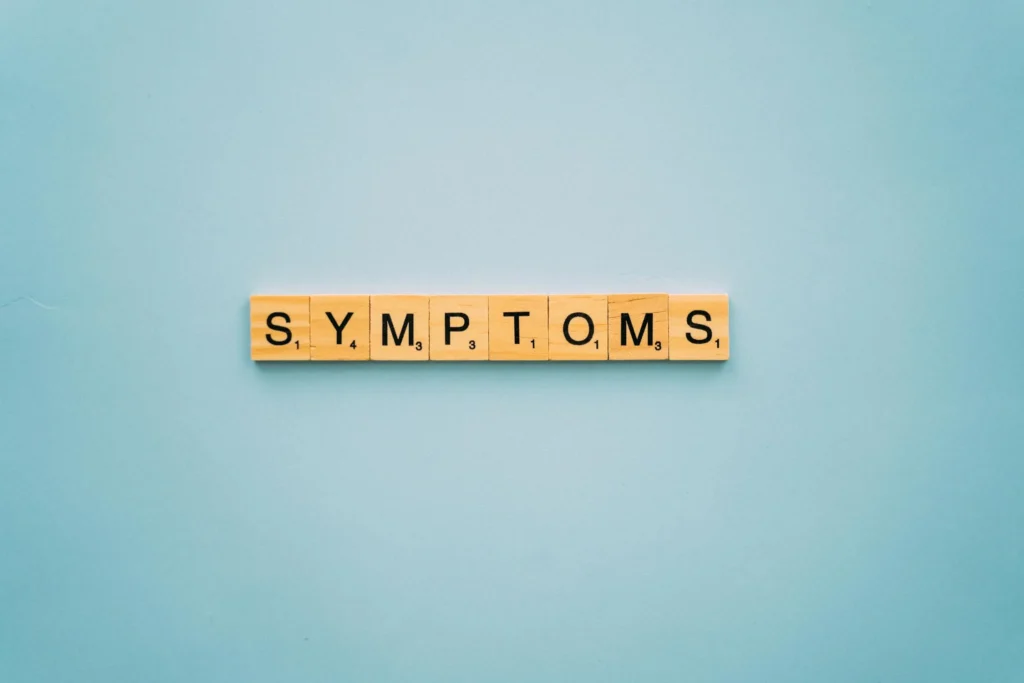Want to know What is gastroenteritis and what are the key signs of gastroenteritis? Then have a look at the article presented by the experts of wellhealthorganic.com: key signs of gastroenteritis. Check out the post and learn everything in detail.
Introduction
Gastroenteritis, often referred to as the “stomach flu,” is an irritation and inflammation of the intestines and stomach. It’s a common condition that can strike people of all ages and can be quite unpleasant. While typically not serious, gastroenteritis can leave you feeling miserable with symptoms like vomiting, diarrhea, and cramps. Knowing the key signs can help you identify it and take steps to feel better fast.
What is Gastroenteritis?
Gastroenteritis is an inflammation of the lining of your stomach and intestines. It is commonly referred to as the “stomach flu” but unlike the flu, it is not caused by the influenza virus. It can be caused by a variety of germs, including viruses, bacteria, and parasites. The most common symptoms of gastroenteritis are vomiting and diarrhea, which can lead to dehydration, especially in young children and older adults. Other symptoms may include abdominal cramps, nausea, fever, and headache.
In most cases, gastroenteritis is a mild illness that goes away on its own within a few days. However, it can be serious for some people, especially those who are already dehydrated or have weakened immune systems. If you are experiencing symptoms of gastroenteritis, it is important to stay hydrated by drinking plenty of fluids, such as water, clear broths, or oral rehydration solutions. You should also avoid eating solid foods until you are feeling better. If your symptoms are severe or do not improve within a few days, you should see a doctor.
Gastrointestinal Distress Delving
Gastrointestinal distress, also known as GI distress, is a general term for a variety of symptoms that affect the digestive system, or GI tract. This tract runs from your mouth all the way to your anus, and includes your esophagus, stomach, small intestine, large intestine (colon), rectum, and anus.
Common symptoms of GI distress include:
- Abdominal pain or cramping
- Bloating
- Gas
- Heartburn or indigestion
- Nausea or vomiting
- Diarrhea
- Constipation
There are many different causes of GI distress, including:
- Viruses, such as the stomach flu
- Bacteria, such as those that cause food poisoning
- Parasites
- Food intolerance, such as lactose intolerance
- Celiac disease
- Inflammatory bowel disease (IBD), such as Crohn’s disease or ulcerative colitis
- Irritable bowel syndrome (IBS)
- Medications
- Stress
- Medical conditions, such as diabetes or thyroid disease
If you are experiencing GI distress, it is important to see a doctor to determine the cause and get treatment. Early diagnosis and treatment can help prevent complications.
Gastroenteritis Cause Exploration
Gastroenteritis is an inflammation of the intestines that causes diarrhea, vomiting, and abdominal cramps. The most common cause of gastroenteritis is a viral infection, but it can also be caused by bacteria, parasites, or toxins.
- Viruses: Norovirus, rotavirus, adenovirus, and astrovirus are the most common viruses that cause gastroenteritis. These viruses are spread through contaminated food or water, close contact with an infected person, or by touching surfaces that have been contaminated with the virus.
- Bacteria: E. coli, Salmonella, and Campylobacter are some of the bacteria that can cause gastroenteritis. These bacteria are spread through contaminated food or water, or by contact with animals or their feces.
- Parasites: Giardia lamblia and Cryptosporidium are parasites that can cause gastroenteritis. These parasites are spread through contaminated food or water, or by contact with feces from an infected person or animal.
- Toxins: Toxins from certain foods, such as shellfish or mushrooms, can cause gastroenteritis. These toxins can irritate the lining of the intestines and cause diarrhea, vomiting, and cramps.
What is Viral Gastroenteritis
Viral gastroenteritis, often called the “stomach flu,” is an irritation and inflammation of your digestive tract caused by a virus. It impacts your stomach, small intestine, and large intestine. This infection is quite common and typically goes away on its own within a few days.
The biggest concern is dehydration due to vomiting and diarrhea. While unpleasant, most healthy adults recover without issues. However, it can be serious for infants, older adults, and those with weakened immune systems.
Bacterial Gastroenteritis Navigation

experience. While unpleasant, most cases resolve within a few days with home care. Here’s the key:
- Hydration is king: Fight dehydration by sipping fluids often. Opt for clear broths, oral rehydration solutions, or diluted juices, or healthy fruits containing water. Avoid sugary drinks and alcohol, which can worsen diarrhea.
- Rest and recovery: Your body is battling bacteria, so prioritize sleep.
- Diet matters: Stick to bland, easily digestible foods like toast, rice, and bananas. Gradually add complex carbohydrates as you improve.
- Over-the-counter relief: Consider medications to manage nausea, vomiting, or diarrhea if needed.
Seek medical attention if:
- Symptoms worsen or persist for more than a few days.
- You experience severe dehydration (dizziness, lightheadedness).
- Blood appears in your stool.
By prioritizing fluids, rest, and a gentle diet, you’ll be well on your way to recovery.
Unusual Causes of Gastroenteritis
Gastroenteritis is most commonly caused by viruses and bacteria, but there are some rarer causes to be aware of. Here are two examples:
- Eosinophilic gastroenteritis: This is a chronic inflammatory bowel disease (IBD) that causes an abnormal increase of white blood cells called eosinophils to accumulate in the digestive tract. This can lead to cramping, abdominal pain, diarrhea, and malnutrition. The exact cause of eosinophilic gastroenteritis is unknown, but it may be related to allergies or autoimmune disorders.
- Microscopic colitis: This is another IBD that causes chronic inflammation in the inner lining of the colon. There are two types: lymphocytic colitis and collagenous colitis. Both types can cause watery diarrhea, but often without any blood or mucus. Microscopic colitis is more common in women and people over 50. The cause of microscopic colitis is unknown, but it may be triggered by certain medications, infections, or autoimmune diseases.
If you are experiencing gastroenteritis symptoms that are severe or don’t improve within a few days, it’s important to see a doctor to rule out these and other less common causes.
Non-Infectious Gastroenteritis: Beyond the Bug
While most gastroenteritis cases stem from viruses or bacteria, non-infectious causes can also irritate your gut. These culprits can be dietary, medicinal, or even a result of medical procedures.
- Dietary culprits: Food intolerances to lactose or gluten, and even certain toxins from spoiled fish or poisonous mushrooms can trigger inflammation.
- Medications: Anti-inflammatory drugs like ibuprofen and some antibiotics can disrupt your gut’s natural balance, leading to discomfort.
- Medical procedures: Radiation therapy for cancer can inflame the digestive tract, causing symptoms similar to gastroenteritis.
Understanding the non-infectious triggers allows for targeted treatment. Identifying food sensitivities through elimination diets or pinpointing medications that cause problems are crucial steps. In some cases, managing underlying conditions like inflammatory bowel disease might be necessary.
Contaminated Food and Water Impact
Contaminated food and water pose a significant threat to human health, causing a range of illnesses from short-term diarrhea to chronic diseases. Contaminated water can harbor harmful bacteria, viruses, and parasites, leading to waterborne diseases like cholera and typhoid. Contaminated food can also be a culprit, with transmission through improper handling or containing toxins. This can cause foodborne illnesses like E. coli infection or salmonellosis. Children, pregnant women, and the elderly are particularly vulnerable. The impact goes beyond individual health, affecting economies through lost productivity and healthcare costs.
How To Recognize Symptoms of Gastroenteritis

Gastroenteritis, also known as the stomach flu, is an inflammation of the intestines that causes diarrhea, vomiting, and abdominal cramps. It’s a common illness that can be caused by viruses, bacteria, or parasites.
Here are some of the common symptoms of gastroenteritis:
- Sudden diarrhea
- Vomiting and nausea
- Abdominal cramps and pain
- Loss of appetite
- Low-grade fever
- Dehydration (feeling lightheaded, dizziness)
- Muscle aches
While most cases of gastroenteritis are mild and resolve on their own within a few days, it’s important to stay hydrated by drinking plenty of fluids, such as water, broth, or an oral rehydration solution. If you experience any of these symptoms and they are severe or persist for more than a few days, be sure to consult a healthcare professional.
Assessing the Severity of Gastroenteritis
Gastroenteritis, also known as the stomach flu, is an inflammation of the intestines that causes diarrhea, vomiting, and abdominal cramps. While most cases are mild and resolve on their own within a few days, some can become serious. Here’s a quick guide to help you assess the severity of gastroenteritis:
Signs of mild gastroenteritis:
- Vomiting less than 4 times a day
- Diarrhea less than 6 times a day
- Mild abdominal cramps
- Able to keep fluids down
Signs of potentially severe gastroenteritis:
- Frequent vomiting (more than 5 times a day)
- Bloody stools
- Severe abdominal pain
- High fever (over 102°F)
- Signs of dehydration (dizziness, dry mouth, decreased urination)
- Inability to keep fluids down
If you experience any of the signs of severe gastroenteritis, it’s important to seek medical attention immediately. Early intervention can help prevent dehydration and other complications.
Here are some tips for staying hydrated during gastroenteritis:
- Sip on fluids throughout the day, even if it’s just a little at a time.
- Suck on ice chips or popsicles.
- Drink oral rehydration solutions, which can help replenish electrolytes lost due to vomiting and diarrhea.
Remember, I am not a medical professional. This information is intended for general knowledge only and should not be a substitute for professional medical advice. If you are concerned about your health, please consult with a doctor or other qualified healthcare provider.
Gastroenteritis Management: Role of Hydration

Gastroenteritis is an inflammation of the intestines that causes diarrhea, vomiting, and abdominal cramps. Dehydration is the most serious complication of gastroenteritis, especially in young children and older adults.
Hydration is crucial during gastroenteritis because it helps:
- Replenish lost fluids and electrolytes
- Maintain normal body functions
- Prevent complications like kidney failure
- Improve the body’s ability to fight off infection
Here’s how hydration helps manage gastroenteritis:
- Reduces severity of symptoms: Adequate fluids can help loosen stools and reduce cramping.
- Shortens illness duration: By flushing out toxins and keeping the digestive system moving, hydration can speed up recovery.
- Prevents complications: Dehydration can lead to serious consequences. Maintaining hydration is key to preventing them.
Tips for staying hydrated during gastroenteritis:
- Take small, frequent sips of fluids throughout the day, rather than large gulps at once.
- Suck on ice chips or popsicles.
- Drink clear broths or oral rehydration solutions (ORS).
- Avoid sugary drinks, caffeinated beverages, and alcohol, as they can worsen diarrhea.
Dietary Considerations for Gastroenteritis
Gastroenteritis, also known as the stomach flu, is an inflammation of the intestines caused by a virus, bacteria, or parasite. It leads to unpleasant symptoms like vomiting, diarrhea, and dehydration.
Dietary Considerations:
- Hydration is key. Take frequent sips of water or an oral rehydration solution (ORS) to prevent dehydration.
- Bland, easily digestible foods are recommended once you can tolerate them. These include:
- Toast or crackers
- Bananas
- Rice
- Applesauce
- Cooked vegetables
- Avoid foods that can irritate your digestive system, such as:
- Spicy foods
- Fried foods
- Fatty foods
- Dairy products (if you have lactose intolerance)
- Caffeinated drinks
- Alcohol
- Gradually reintroduce other foods as you start to feel better. If you have any concerns, consult a doctor or licensed dietician.
Rest and Recharge: Beating Gastroenteritis
Gastroenteritis, often called the stomach flu, can leave you feeling drained. But rest is your best weapon! Here’s how to recover:
- Prioritize sleep: Your body is fighting off an infection. Catch up on sleep to aid recovery.
- Hydrate, hydrate, hydrate: Vomiting and diarrhea can lead to dehydration. Sip clear broths, oral rehydration solutions, or water throughout the day.
- Bland is best: Give your digestive system a break. Eat easily digestible foods like toast, bananas, rice, and applesauce. Avoid greasy, spicy, and dairy foods for now.
- Take it slow: Gradually introduce regular foods as you feel better. Start with small, bland meals and increase portion sizes as tolerated.
By resting and replenishing fluids, you’ll be back on your feet in no time! If your symptoms worsen or persist for several days, consult a healthcare professional.
Gastroenteritis Transmission Prevention
Gastroenteritis, often called the “stomach flu,” is no fun. Luckily, there are ways to keep this contagious illness at bay. The key weapon? Frequent handwashing! Lather up with soap and water for at least 20 seconds after using the toilet, changing diapers, and before preparing food.
Washing fruits and vegetables thoroughly and cooking food to safe temperatures are also important steps. If you’re sick, stay home for 48 hours after symptoms stop to avoid spreading it to others. By following these simple tips, you can significantly reduce your risk of catching or spreading gastroenteritis.
Vaccination: Prevent Gastroenteritis
Gastroenteritis, often called the “stomach flu,” is no fun. Luckily, there are ways to keep this contagious illness at bay. The key weapon? Frequent handwashing! Lather up with soap and water for at least 20 seconds after using the toilet, changing diapers, and before preparing food.
Washing fruits and vegetables thoroughly and cooking food to safe temperatures are also important steps. If you’re sick, stay home for 48 hours after symptoms stop to avoid spreading it to others. By following these simple tips, you can significantly reduce your risk of catching or spreading gastroenteritis.
Travel Precautions For Gastroenteritis

Gastroenteritis, also known as traveler’s diarrhea, is a common illness that can strike travelers, especially those visiting developing countries. It’s caused by consuming contaminated food or water and can cause unpleasant symptoms like vomiting, diarrhea, and stomach cramps.
Here are some travel precautions you can take to minimize your risk of getting gastroenteritis:
- Be meticulous about hand hygiene: Wash your hands thoroughly with soap and water before eating, after using the washroom, and after being in public places. If soap and water aren’t available, use an alcohol-based hand sanitizer.
- Drink bottled water: Avoid tap water and stick to bottled water, even for brushing your teeth. Opt for commercially bottled or canned beverages whenever possible.
- Practice safe food choices: Be cautious about what you eat. Opt for cooked and hot meals, fruits you can peel yourself, and vegetables that have been cooked or soaked in purified water. Avoid raw or undercooked fish and meat, unpasteurized dairy products, and food from street vendors.
By following these simple steps, you can significantly reduce your chances of getting sick and ruining your trip.
Environmental Considerations For Gastroenteritis
Environmental factors play a significant role in the transmission of gastroenteritis, which is inflammation of the intestines. Here’s how:
- Contaminated food or water:This is a common culprit, especially in areas with poor sanitation. Viruses, bacteria, and parasites can all contaminate food and water sources.
- Poor hygiene:Not washing hands properly before eating or preparing food, or after using the toilet can spread germs that cause gastroenteritis.
- Close contact with an infected person: Gastroenteritis viruses and bacteria can spread easily from person to person, especially in crowded environments.
- Travel to areas with high rates of gastroenteritis: Certain regions have a higher risk of gastroenteritis due to factors like sanitation and hygiene practices.
By being mindful of these environmental factors, you can significantly reduce your risk of contracting gastroenteritis.
Community Education and Outreach
Community education and outreach bridge the gap between organizations and the people they serve. It’s a two-way street: informing residents about important topics (health, sustainability, etc.) and creating opportunities for them to participate. Imagine workshops teaching mental health skills to teens or presentations on eco-friendly gardening for homeowners. Outreach empowers communities by fostering knowledge and building connections.
To Summarize
Gastroenteritis, often referred to as the “stomach flu,” is an unpleasant but typically short-lived illness. While uncomfortable symptoms like diarrhea and vomiting can disrupt daily life for a few days, most cases resolve on their own. Fortunately, prevention is key. Frequent handwashing and proper food handling can significantly reduce your risk of contracting the virus or bacteria that cause it. However, dehydration is the main concern, especially for young children and the elderly. If you experience persistent vomiting, severe dehydration signs, or bloody stools, consult a healthcare provider to ensure proper treatment and prevent complications. By staying hydrated and practicing good hygiene, you can navigate gastroenteritis and get back to feeling your best quickly.


